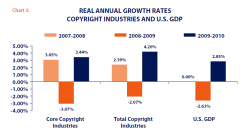Weekly News Roundup (6 November 2011)
Hope you had a great Halloween last Monday. We don’t celebrate Halloween much in Australia, although the prevalence of US entertainment programmes on television here meant that some kids here will have caught Halloween fever. Which is why I spent Monday night hiding from door knockers and pretending nobody was home, as we’re not big candy eaters and so stock levels were dangerously low for trick or treating purposes, particularly the latter.
Which is just as well, since it gave me more time to put the finishing touches on a new website I was making for Australians, called Faraway Deals. It’s my way of helping Aussies take advantage of the generous exchange rate, by helping them to spot the best movie and games deals and discount for shopping overseas. And by overseas, I mean the UK, since there are fewer region issues (Australia is in the same Blu-ray region as the UK, and we’re both PAL countries in terms of game regions), plus the exchange rate is even more favourable than compared to the practically worthless US dollar (hurrah for European debt crisis!)
Plenty of news to go through, so let’s get started.

In copyright news, it’s been a busy week. Actually, almost all of the news that I’ll be talking about this week are copyright related, but with thing happening in the courts, in congress, and all of them potentially seismic changes.
We start with the slightly ridiculous: Justin Bieber. I never thought that I would have to talk about the “Biebster” here in the WNR, but this day and age, anything is possible. But nobody really expected Bieber to be caught in the middle of a copyright war, and I don’t think a single soul expected him to be on both sides of the war at the same time, if that’s even possible. The FreeBieber.org website was set up to protest the Commercial Felony Streaming Act (S.978), which would make it a streaming copyrighted video a felony. The link to Bieber is that he actually became famous on the back of a bit of copyright infringement, of the streaming kind as well, when he uploaded videos of himself singing popular, and copyrighted, songs on YouTube. Had Bieber done it after S.978, he might find himself facing 5 years in prison for having committed felony. And this kind of “copyright infringement” seems to be quite a preferred way to become famous online, maybe not Bieber famous, but YouTube famous (or infamous) at least (the alternative is to hire a production company to write you an original song, and we know how that can turn out). And how does this kind of copyright infringement, a felony under S.978, actually hurt anyone? Would people stop buying Chris Brown’s ‘With You’ just because one Justin Bieber uploaded his, poor recording quality, version of the song? And had the rights holders to ‘With You’ filled a takedown notice with YouTube and removed the Bieber version before people had a chance to view it, would the music world be better or worse without Justin Bieber? (on second thought, don’t answer that)
Anyway, Bieber was asked what he thought of FreeBieber.org and S.978, and obviously, as someone who got famous on the back of what is now potentially a felony (and not only that, anybody that embedded the video on his or her blog would also be committing a felony under S.978), he came out supporting the anti-S.978 movement. To the point where I think he got a bit overboard with the sentiment and recommended the incarceration of the US Senator that sponsored the bill. But at the same time, his lawyers were doing all they can to kill off FreeBieber.org, by sending a cease and desist letter to the people behind the website asking them to stop using Bieber’s image. Of course, the EFF stepped up to defend FreeBieber and attack Justin Bieber’s lawyers for not knowing about the First Amendment, especially when this is part of the core First Amendment rights, the freedom to espouse political views. I think Justin should get in contact with his lawyers and get them to tone it down a little, especially when FreeBieber.org isn’t actually hurting Bieber-nomics, and it may be helping to boost his rebellious image. And the website also serve to entertain those that like seeing pictures of Justin Bieber behind bars, so it’s a win-win.
Despite all the ruckus over S.978, it isn’t even the most controversial copyright bill up for debate on Capitol Hill at the moment. That would be the E-Parasites bill, also known as Stop Online Piracy Act (SOPA), currently being mooted for debate in the House of Reps. I’ve already talked about SOPA in previous WNRs, so have a look if you need more background info. But this week has all been about opinions, and most of them are against SOPA, with op-ed pieces popping up everywhere, and with the pro-SOPA opinions most limited to the usual suspects, the MPAA and RIAA. Not only that, there’s no an E-Petition up and running to oppose SOPA, but unlike most other E-Petitions (which are only slightly more useful than completely useless), this one is being run on a website set up by the White House, and if 25,000 signatures can be obtained before the end of November, the promise is that the White House would take the time to seriously consider the petition. Practically speaking, the copyright lobby friendly White House won’t do a thing to stop SOPA, but 25,000 names is a nice and achievable goal (over 10,000 signatures already, in the first week), and if the power of the Internet can be harnessed and much more than 25,000 names added to the petition, then it will definitely send a message.
The ridiculous coddling of copyright interest isn’t just in the US though, over in the UK, ISP BT has to now officially block Newzbin2 this month, a court has ordered. This is despite Newzbin2’s “guilt” never properly tested in a court (the original verdict was for the original Newzbin, not the second incarnation, most likely run by totally different people), and Newzbin2 not having any sort of profile in the UK itself (as it’s based in a foreign country, run most likely by foreigners), and so not even jurisdiction is clear. But yet, BT will have to comply and use its child-porn filter to do the filtering, which really shows where the priority is these days, taking resources away from fighting child porn to use on anti-piracy. The ridiculousness of this ruling, which basically opens up the door for corporate backed censorship in the UK, is already getting the copyright lobby excited, with the music industry already signalling it will ask BT, and other ISPs, to start blocking The Pirate Bay. And with the precedent already set, getting other sites blocked should be much easier, although getting around the filter may be just as easy too.
And so with one ridiculous, overreaching bills and court rulings, after another, and with the copyright lobby working overtime (by working, I mean of course spending) and the statements they’ve made, you would think the piracy problem must be really killing the creative, copyright industries. Talks of hundreds of thousands of job losses, the threat of good content disappearing, movie studios and music labels going out of business, so surely, there should be plenty of facts just lying around to highlight the financial toll of online piracy. Well, there’s definitely “lying” anyway.

The copyright industries seems to be doing pretty well, according to a new report, despite "huge piracy problems"
You see the problem for the copyright industries, but really just to vocal ones that pay the salaries of the RIAA and MPAA, is that while they have to paint a bleak picture of the effects of piracy, they also have to highlight just how important they are to the economy, the US economy in particular. And to do that, they have to show how much money they contribute to the economy, and they have done it via a new report. The problem of course is, on the one hand they have to say “we’re important because we’re doing great”, and on the other hand they have to say “we’re not doing great because of piracy”. But as the report highlights, the core copyright industries have never had it better – they’re making more money despite the recession, and job losses have been relatively subdued compared to other industries. So where’s the online piracy induced disaster? Surely, with web piracy at an all time high, revenue should be down the drain compared to say 10 years ago, and while that may be true for the music industry, it has much more to do with people’s changing buying habits than actual piracy (people buy fewer albums, instead, buys more tracks – choice, if anything, is the real “killer” of the music industry it appears).
And speaking of job losses, the current Boogeyman that the RIAA/MPAA likes to use to scare politicians, pay in copyright industries are actually 15% to 27% higher than other industries. So much for massive job losses and not being able to afford to make new content, while other industries are “forced” to tighten belts by embrace the “work more for less” principle (*cough* exploitation *cough*).
The reason for the industry’s resilience against surging piracy rates may very well be due to the fact that piracy has a bigger effect on the segment of the “market” that traditionally don’t buy a lot of stuff. These people may have been participating in casual piracy, “borrowing” content from friends, or recording stuff from TV, or buying dodgy discs from street vendors, before Internet piracy became the easy way to get content for free. And if so, then the only real effect is that the increase in the amount of content these people have access to. And this can be a good thing too, as while the conversion rate, the rate at which people who get free content decide to buy the content, may be low, it’s still better than zero, and so piracy does lead to sales, and there are plenty of evidence to support this. At the very least, it gets people talking about the content in question, and it can create the kind of peer pressure that forces others to get the content, via legal means if they’re capable of doing so.
And it was surprising to see the same argument being used in court, but not by the defence, but by the judge, in making a ruling for a piracy case in Spain. Finally, the argument that not all piracy, if prevented, would have led to sales was used in a court of law, and accepted by the judge in question. The copyright industry, even as they wash their hands of the responsibility for protecting their own content (handing it to the government instead), should at the very least prove that they have actual, financial losses stemming from piracy, and if so, how much. If they cannot provide even a rough estimate, and not the kind of that RIAA/MPAA like to produce (1 x piracy = 1 x lost sale at highest retail price), of their own losses (and their own report seems to indicate not much loss going on at all), then they shouldn’t have a legal leg to stand on. And this wasn’t even the most controversial part of the Spanish judge’s ruling. The judge also came to the logical conclusion that piracy may actually help sales, for the very same reasons I explained above. Now, I’m sure this judge’s ruling will be appealed to the high heavens, but at the very least, in this one moment, we have some legal precedents being set that sets the bar that much higher, or at least even have a bar at all, for rights holder to prove their actual losses. Can’t prove it? Then no damages, it’s as simple as this.
And not being able to prove actual losses, and still intent on suing, should be punished. Just like the way notorious copyright troll Righthaven is being punished in courts right now. By not paying Wayne Hoehn and his lawyers the cost that was awarded against Righthaven, the judge has seen fit to nearly double the amount payable, from $34,000 to $63,700, for interests and additional incurred costs, and if Righthaven don’t pay up soon, then the court has ordered the US Marshals service to intervene if needed. While the judge’s ruling didn’t really reflect this point, but the fact that Righthaven (and their client, Stephens Media), still cannot prove the actual financial damage that comes from non profit bloggers posting a small segment of their newspaper articles, surely didn’t help their case.
And in the latest case of “DRM is teh suck”, we have RealNetworks’ decision to shut down support for their DRM portion of their online music service, Rhapsody. So all those that purchased tracks prior to July 2008 will have to quickly convert their tracks to audio CD, and then rip them back to a non DRM’d MP3, or they may lose the ability to listen to the songs they paid for, if they change or upgrade their computers. Once again, content holders force us to put up with annoying DRM, and at the first sign it becomes a pain to maintain, they ditch it and force us to jump through hoops again to retain the content we already paid for. It seems Rhapsody is not even providing any detailed instructions on how to do this conversion (other than the warning that if you don’t do it by tomorrow, bad luck), even though they should be providing DRM-free MP3 versions of DRM’d tracks, which isn’t even very hard to do since they already have them as part of their current music store. There ought to be a law to force rights holder to be responsible for their own DRM, that if they either provide indefinite support for DRM (which would probably fail most cost benefit scenarios), or if they decide to withdraw support, then they must ensure users get continued access to purchased content, if that means providing a DRM free version. Otherwise, to me, DRM is nothing but a fraud to make people pay multiple times for the same thing.

In HD/3D news, we’ve had yet another near record week for Blu-ray market share, but looking closer, the numbers are less clear.
For the week ending 22nd October 2011, Blu-ray market share reached a near record of 38.87%, just shy of the 40.22% set a few weeks earlier. But both weeks had one thing in common, or rather two. One – for both weeks, the top selling title was a Disney release. And two, both were Blu-ray “exclusives”.

Combos are appearing in DVD packaging and is the only option for DVD owners, but are still counted as Blu-ray in the sales stats
I put the term exclusives in quotes because, while both titles (The Lion King and Pirates of the Caribbean: On Stranger Tides) had DVD versions that could be purchased, the sale of these versions would only count towards Blu-ray sales, because the DVD versions were locked inside combos. And the decision to count combos only as Blu-ray exclusives may have made sense when these were few and far between and aimed mainly at early or potential Blu-ray adopters, the situation has changed with these high profile releases, particularly the A-list ‘On Stranger Tides’, now using combos as an easy way to sell people what they don’t need and charge a slightly higher price for the privilege.
A combo is better value if you need both the Blu-ray and DVD version, but that’s not really the case for most people. For kids movies, like The Lion King, it perhaps makes a bit more sense, since you can give the DVD copy to your kids to destroy. But for A-list releases?
And even worse, these combos now come in DVD packaging (those taller boxes), and so are placed in DVD sections of stores. This ensures people buy the Blu-ray version even if they don’t need it, and I suspect some won’t even know what it is. But if they’re willing to pay for it, then it does provide them some future-proofing, and that’s not a bad thing, but really, these combos should be counted separately in sales, particularly ones that come in DVD packaging (or just count the ones that come in DVD packaging as DVD sales). Otherwise, my weekly Blu-ray vs DVD sales figure analysis will quickly lose what little meaning it has, and this possibly leads to more work for me, which is a terrible, terrible thing.
And on that note, let’s end this WNR and the end of my work on Sunday. See you next week.


August 11th, 2013 at 8:03 pm
[…] all of this sounds familiar, then it’s because it is. Check out this WNR from November 2011, in which the same issue was discussed due to an independent piece of legislation urging for the […]